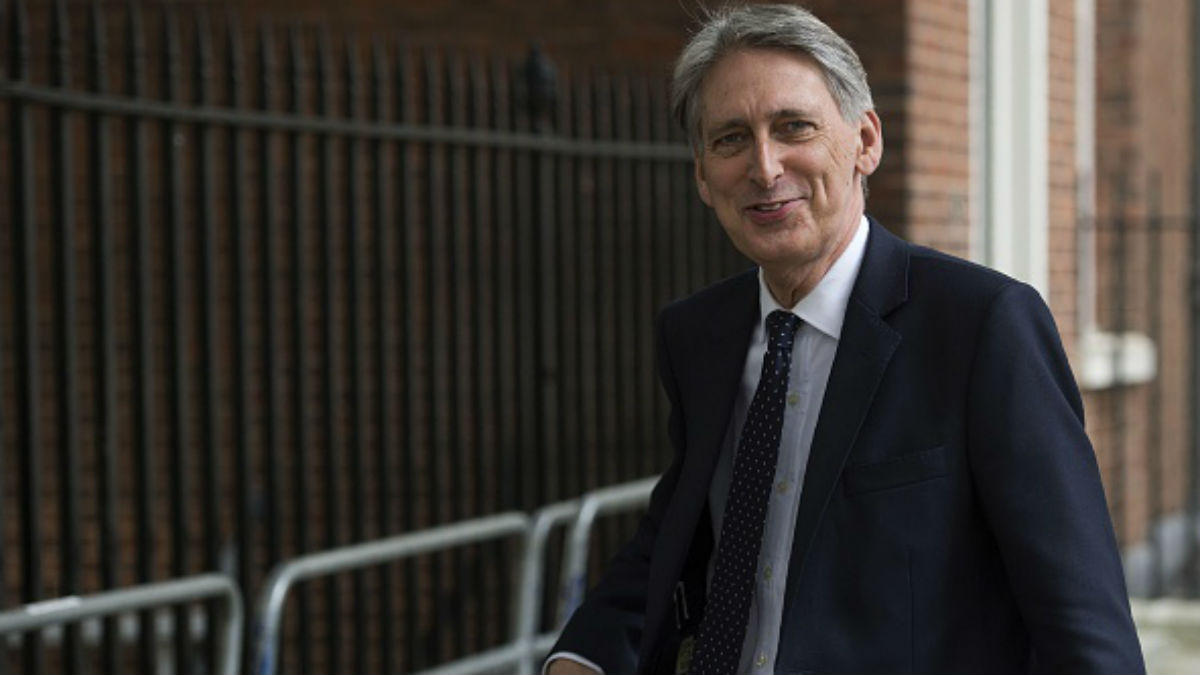What Budget 2017 means for your wallet
If you are self-employed or earn dividends from investments, you could be hit with a tax hike

A free daily email with the biggest news stories of the day – and the best features from TheWeek.com
You are now subscribed
Your newsletter sign-up was successful
Chancellor Philip Hammond issued his first Budget this week. Here's how it could affect your wallet.
1. National insurance
If you are self-employed the amount of National Insurance you pay is going to rise from April 2018. The rate will increase by one percentage point to ten per cent - then in April 2019 it will rise again to 11 per cent.
The Week
Escape your echo chamber. Get the facts behind the news, plus analysis from multiple perspectives.

Sign up for The Week's Free Newsletters
From our morning news briefing to a weekly Good News Newsletter, get the best of The Week delivered directly to your inbox.
From our morning news briefing to a weekly Good News Newsletter, get the best of The Week delivered directly to your inbox.
This is expected to cost the average self-employed worker an extra £31 a year. Employed people will continue to pay National Insurance at 12 per cent.
It remains to be seen whether this policy will survive a back-bench Tory rebellion and a vote on the measure has been delayed until the autumn.
2. Dividend tax
The amount of money you can earn from dividends before tax is due is being slashed. From April 2018 it will fall from £5,000 to £2,000 a year.
A free daily email with the biggest news stories of the day – and the best features from TheWeek.com
The dividend allowance was generous and meant an investor could hold around £150,000 in shares before they paid dividend tax, according to Les Cameron from Prudential. The change will mean you can hold around £60,000 in shares without having to pay dividends, depending on the yield on your shares.
However, the ISA allowance rises to £20,000 from 6 April and dividends earned within an Isa are free from tax so most investors will still be able to avoid paying.
3. NS&I savings bond
The Chancellor also used the Budget to reveal details of a new National Savings & Investment bond. The account will be available from April and will pay 2.2 per cent on savings up to £3,000.
Your money will be locked away for three years and the interest will be subject to tax unless it falls within your Personal Savings Allowance.
The interest rate has been met with disappointment from the finance industry, where there had been hope the Chancellor would use the bond to give savers a break from pitiful interest rates.
The new bond would pay just £6 more a year than is already available on the open market, according to Anna Bowes of SavingsChampion.co.uk.
4. Income tax
The amount you can earn before income tax is due will rise by £500 to £11,500 from 6 April. This should mean thousands of people, especially pensioners, no longer have to pay income tax. Mr Hammond also confirmed plans to increase the personal allowance to £12,500 by 2020.
The threshold for higher-rate income tax will also rise from £43,000 to £45,000.
5. State pension
The Chancellor confirmed that the state pension will rise by 2.5 per cent from April. Anyone who receives the flat-rate pension will see a £3.90 increase to their payments up to £159.55 a week.
6. Financial jargon
Hammond also announced that he will be giving regulators extra powers to fine companies that use complex financial jargon to confuse customers and trick them into signing up for products or services they don’t actually want.
-
 The environmental cost of GLP-1s
The environmental cost of GLP-1sThe explainer Producing the drugs is a dirty process
-
 Greenland’s capital becomes ground zero for the country’s diplomatic straits
Greenland’s capital becomes ground zero for the country’s diplomatic straitsIN THE SPOTLIGHT A flurry of new consular activity in Nuuk shows how important Greenland has become to Europeans’ anxiety about American imperialism
-
 ‘This is something that happens all too often’
‘This is something that happens all too often’Instant Opinion Opinion, comment and editorials of the day